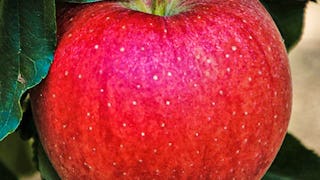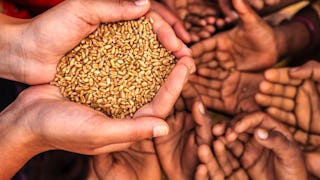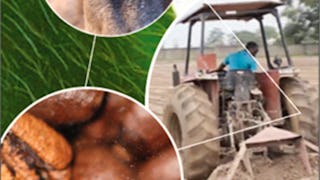Have you ever made a conscious effort to change the way you eat (for health or other reasons) and then felt frustrated when your plans were derailed? You’re not alone. The best laid plans are often sabotaged by a food environment that makes it increasingly hard to make healthier food choices. This can leave many people feeling mistrustful of food or feeling that our relationship with food is somehow broken. In this course, we’ll explore the history of our changing food environment, the science behind cravings for unhealthy foods AND most importantly, you’ll learn some concrete strategies for rebuilding your relationship with food. You’ll learn to practice mindful eating and self-compassion (proven strategies for supporting healthier food choices) as well as designing a customized plan to protect your relationship with food and improve the health of your greatest asset - you! I can’t wait to start on this adventure together.

Enjoy unlimited growth with a year of Coursera Plus for $199 (regularly $399). Save now.

Rebuilding Our Relationship with Food
This course is part of Food Sustainability, Mindful Eating, and Healthy Cooking Specialization

Instructor: Maya Adam, MD
20,467 already enrolled
(355 reviews)
Recommended experience
What you'll learn
How to practice mindful eating or food mindfulness.
How to practice self-compassion and rebuild your relationship with food.
Skills you'll gain
Details to know

Add to your LinkedIn profile
18 assignments
See how employees at top companies are mastering in-demand skills

Build your subject-matter expertise
- Learn new concepts from industry experts
- Gain a foundational understanding of a subject or tool
- Develop job-relevant skills with hands-on projects
- Earn a shareable career certificate

There are 4 modules in this course
In this module, we’ll examine how the commercial food industry separates us from our food and how this impacts our long-term health. We’ll explore how attitudes towards food can differ across different global regions and different cultures and how our attitudes toward food can affect our health. Finally, we’ll examine the ways in which food can support our optimal performance at work or at play.
What's included
6 videos2 readings7 assignments1 plugin
In this module, we’ll learn about why traditional, restrictive “diets” often fail us, how to begin reframing our thinking about food from “Am I allowed to eat this?” to “Is this food worthy of me?” and how our food choices can shape our food preferences.
What's included
5 videos1 reading5 assignments1 discussion prompt
In this module you’ll learn about the components of self-compassion, a practice that can be used to support healthier food choices and eating behaviors. You’ll also learn about how our taste receptors respond to quantity vs quality and how we can use this knowledge to maximize our eating experience while protecting our health!
What's included
4 videos2 readings3 assignments
In this module, we’ll explore some of the ways in which we can rebuild a longstanding relationship with our food, by observing our own behaviors and developing customized strategies for letting go of habits that don’t serve us well. We’ll also learn more about the practice of mindful eating and how we can incorporate that practice into our daily lives.
What's included
4 videos3 readings3 assignments1 plugin
Earn a career certificate
Add this credential to your LinkedIn profile, resume, or CV. Share it on social media and in your performance review.
Instructor

Offered by
Explore more from Nutrition
 Status: Free Trial
Status: Free TrialStanford University
 Status: Free Trial
Status: Free TrialStanford University
 Status: Free
Status: FreeUtrecht University
 Status: Preview
Status: PreviewUniversity of Copenhagen
Why people choose Coursera for their career




Learner reviews
355 reviews
- 5 stars
89.57%
- 4 stars
7.88%
- 3 stars
1.97%
- 2 stars
0%
- 1 star
0.56%
Showing 3 of 355
Reviewed on Mar 19, 2025
I wish you would avail certificates without the need for a subscription for people who finish the course during trial.
Reviewed on Mar 22, 2023
Very interesting, you get in touch with concepts that usually you don't hear in a regular food course.
Reviewed on Nov 28, 2021
A persuasive way of describing and detailing. You can not but learn some of the good habits.
Frequently asked questions
To access the course materials, assignments and to earn a Certificate, you will need to purchase the Certificate experience when you enroll in a course. You can try a Free Trial instead, or apply for Financial Aid. The course may offer 'Full Course, No Certificate' instead. This option lets you see all course materials, submit required assessments, and get a final grade. This also means that you will not be able to purchase a Certificate experience.
When you enroll in the course, you get access to all of the courses in the Specialization, and you earn a certificate when you complete the work. Your electronic Certificate will be added to your Accomplishments page - from there, you can print your Certificate or add it to your LinkedIn profile.
Yes. In select learning programs, you can apply for financial aid or a scholarship if you can’t afford the enrollment fee. If fin aid or scholarship is available for your learning program selection, you’ll find a link to apply on the description page.
More questions
Financial aid available,





